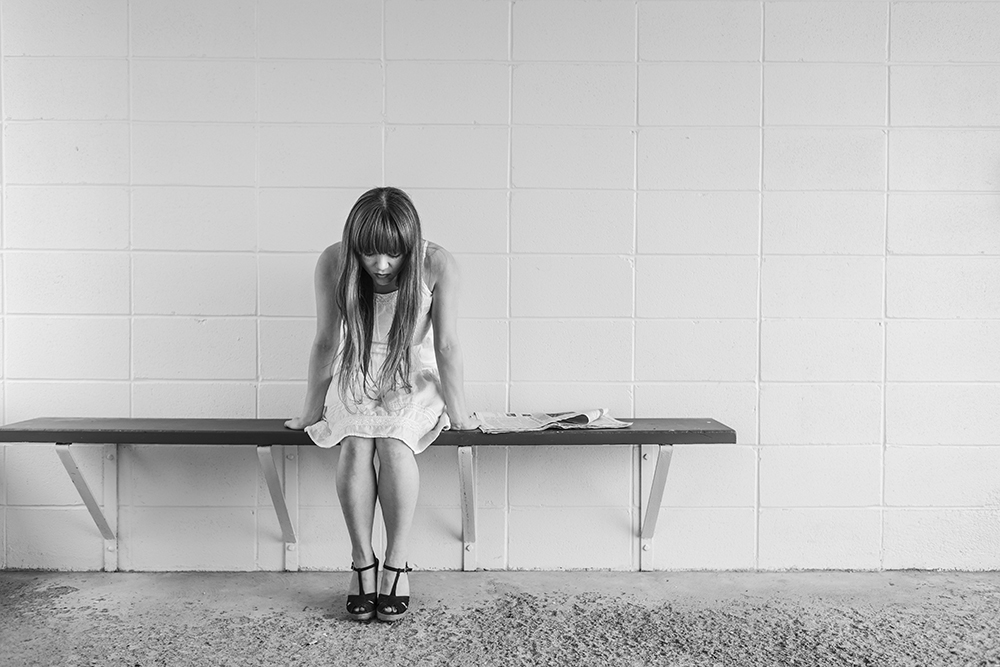The objective of this article is to explain the nature of depression and its treatment.
Summary: Depression is a brain disorder that affects thought, mood, feelings, behavior and physical health. It is best treated with exercise, medication if needed, and psychotherapy. This article provides a description of the nature of depression and its treatment.

The true underlying cause of depression is technically unknown. However, it has been linked to imbalances in chemicals in the brain. This imbalance may be triggered by genetic factors combined with environmental factors such as stress or physical illness.
Other factors that may contribute to depression include the use of certain medications and substance abuse. In short, some people are born with a chemical imbalance that makes them depressed. They are always depressed so they may not recognize it until later in life when someone else notices it--often occurring if they present for psychotherapy for some other reason. Other people experience depression as a result of a life impacting event such as a divorce or death. The event causes anxiety which affects brain chemistry and causes the depression.
Imaging studies show that people who are depressed have less activity in certain brain regions than do those who aren't depressed. This suggests depression is related to changes in the function of certain nerve cells.
Depression often goes with some illnesses that occur in older people. These are heart disease, cancer, Alzheimer's, and Parkinson's diseases, as well as thyroid and endocrine problems.
Diagnosing depression requires a detailed history of the depressed individual. A physical exam is necessary to rule out illnesses that may cause depression.
There are two major symptoms of depression that generally confirm the diagnosis. One is loss of interest in normal daily activities. The other is feeling sad, helpless, and hopeless and possibly experiencing crying spells. The other issues are sleep disturbance, weight change that is significant. agitation or slowed body movements, fatigue, low self-esteem, thoughts of death, loss of sex drive, and possibly some physical symptoms like blurred vision, itching, excessive sweating, dry mouth, headache, backache, and gastrointestinal problems.
We are talking here of major depression. When diagnosing a major depression we are looking for intensity of symptoms and duration--at least two weeks.
Depression is best treated with exercise. A doctor's approval is needed before any rigorous exercise program. The idea is to make serotonin, the chemical in the brain that is responsible for feeling good. Exercise to build a heavy sweat of at least an hour in the morning and an hour at night usually makes depressed people feel better. Avoiding alcohol and drugs, including prescription medications that can cause depression like sleeping pills and pain medications is important. So the exercise makes the serotonin and if there is nothing to use it up like the alcohol or medications, people often feel significantly better.
Sometimes the exercise is not enough. Antidepressants and mood - stabilizers have revolutionized the treatment of depression. Sometimes the medication precedes the exercise if someone is too depressed to take any action at all. Sometimes family members have to get involved to activate a depressed person by taking them for walks.
In any case, the exercise makes the brain chemicals and the anti-depressant saves them. The medication does not work properly without the exercise or if the user is drinking or using drugs.
The antidepressants are often effective but they take time- from one to two months-to become effective. If one drug or another proves ineffective after one to two months it may be necessary to take a combination of drugs. The important issues here are to take the medication long enough, to exercise, and refrain from taking drugs that can cause depression.
If the depression is coming from a life-changing event, psychotherapy may also be indicated. In fact, it is important to use medication and psychotherapy together. The medication provides the optimism and increased energy, and the psychotherapy teaches individuals improved coping skills. The idea is to learn better ways to live while the medication provides the energy for learning new habits. It may be, with the learning of better ways to deal with the world, that the medication will not be needed over time. The general rule of thumb is to stay on the medication for one year after the last major depression. People can try coming off of it if they are feeling good and if the depression returns, they go back on it.
The current method of prescribing drugs for depression involves trial and error. If one drug fails, another is tried. This goes on until the right drug is found. Some people are easier to regulate on medication than others.
Things are changing. Researchers are looking at genetic testing to determine how an individual metabolizes antidepressants.
When you take a medication it gets processed in the liver. The liver releases enzymes which break down the drugs. By analyzing the genes, scientists may be able to see what forms of enzymes are present in your body. This can help them to determine how likely each person maybe to develop side effects.to the medication. This is being seen as a possible major breakthrough for depression management in the coming years.
In summary, depression can make people feel miserable. It has both physical and emotional symptoms. The best treatment for it is exercise, being listened to with respect, and doing things about which you feel good. If this is not enough, a little antidepressant thrown in can activate everything else. None of this works if alcohol or drugs which cause depression are ingested.
